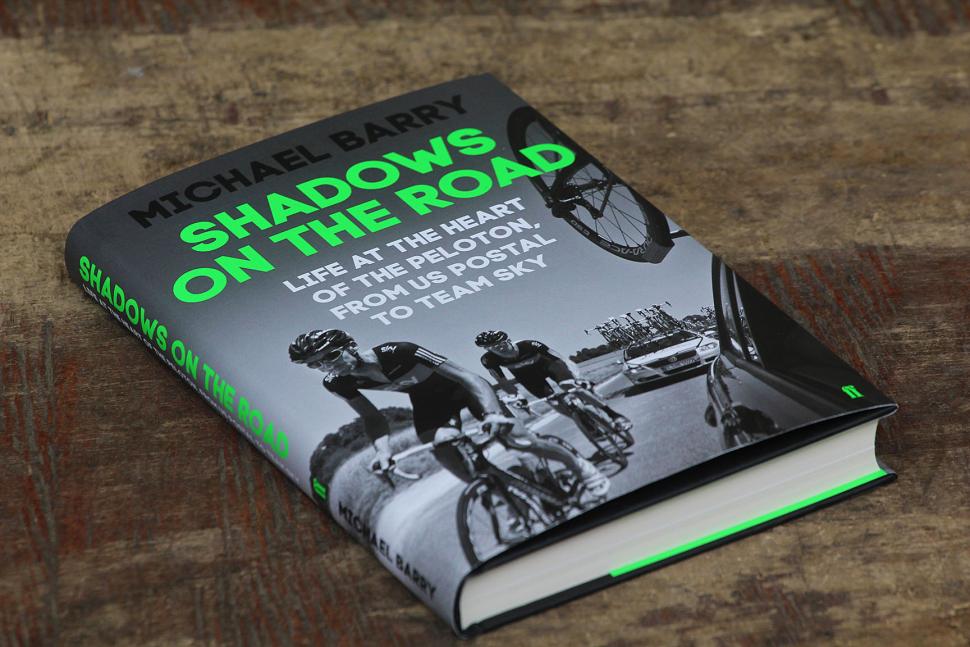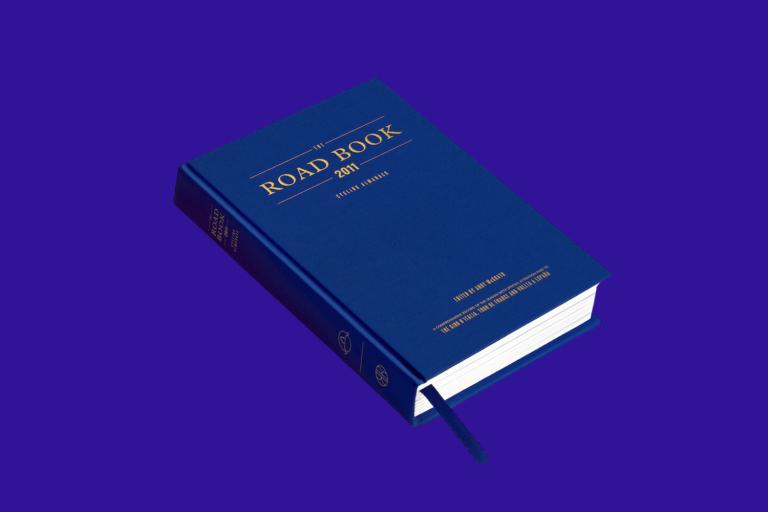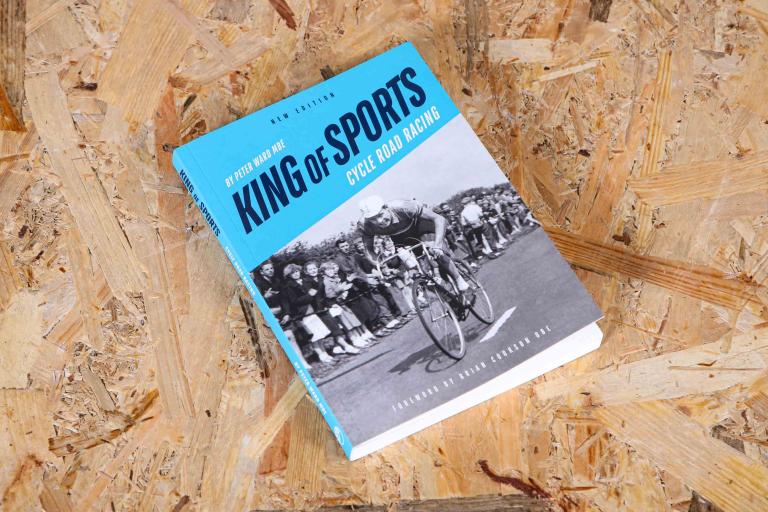- News
- Reviews
- Bikes
- Components
- Bar tape & grips
- Bottom brackets
- Brake & gear cables
- Brake & STI levers
- Brake pads & spares
- Brakes
- Cassettes & freewheels
- Chains
- Chainsets & chainrings
- Derailleurs - front
- Derailleurs - rear
- Forks
- Gear levers & shifters
- Groupsets
- Handlebars & extensions
- Headsets
- Hubs
- Inner tubes
- Pedals
- Quick releases & skewers
- Saddles
- Seatposts
- Stems
- Wheels
- Tyres
- Tubeless valves
- Accessories
- Accessories - misc
- Computer mounts
- Bags
- Bar ends
- Bike bags & cases
- Bottle cages
- Bottles
- Cameras
- Car racks
- Child seats
- Computers
- Glasses
- GPS units
- Helmets
- Lights - front
- Lights - rear
- Lights - sets
- Locks
- Mirrors
- Mudguards
- Racks
- Pumps & CO2 inflators
- Puncture kits
- Reflectives
- Smart watches
- Stands and racks
- Trailers
- Clothing
- Health, fitness and nutrition
- Tools and workshop
- Miscellaneous
- Buyers Guides
- Features
- Forum
- Recommends
- Podcast
review
 Shadows on the Road
Shadows on the Road£17.99
VERDICT:
The shattered bones and shattered dreams of riding in the pro peloton, told well by a damaged survivor
Weight:
509g
Contact:
At road.cc every product is thoroughly tested for as long as it takes to get a proper insight into how well it works. Our reviewers are experienced cyclists that we trust to be objective. While we strive to ensure that opinions expressed are backed up by facts, reviews are by their nature an informed opinion, not a definitive verdict. We don't intentionally try to break anything (except locks) but we do try to look for weak points in any design. The overall score is not just an average of the other scores: it reflects both a product's function and value – with value determined by how a product compares with items of similar spec, quality, and price.
What the road.cc scores meanGood scores are more common than bad, because fortunately good products are more common than bad.
- Exceptional
- Excellent
- Very Good
- Good
- Quite good
- Average
- Not so good
- Poor
- Bad
- Appalling
It's almost a quarter century since Paul Kimmage's 'Rough Ride' hit the shops. Kimmage was derided by the press and his fellow pro cyclists and his message swept under the carpet for 15 years until Floyd Landis started naming names that could no longer be ignored as malcontents and poor losers.
Michael Barry was one of those names named by Landis and with time spent at US Postal, Discovery, and then Team Sky he's perfectly placed, post retirement from Team Sky in 2013 to reflect on the segue between racing on drugs and racing clean.
There have been so many riders retiring and then bringing out sob stories that you'd be forgiven for being a little dope weary now. Who was to know when Kimmage first talked of the slippery slope of pills to injections, that all these years later so many would be jostling on Amazon as they once did in the peloton to steal his crown? There is an awful lot of regret out there fighting for attention - a full start line of characters racing through the shadows of perverted science to the broad sunlit uplands of a book contract.
To be fair to Barry this isn't just the usual tale of young lad corrupted by the realities of pro cycle racing; of one thing leading to another and him not really being to blame. Barry makes it very clear in the introduction when he agrees to testify to Bill Bock from USADA what his crimes were and to his credit, leaving Landis twisting out in the wind is at the forefront of Barry's mind. There's no obfuscation and reading between the lines here.
'I had doped during a period if my career and had used the substances Mr Bock listed. To avoid being caught, I had lied. When an ex-teammate, Floyd Landis, publicly said that we had shared EPO, I denied the claim and called him a liar.'
Like his good friend and training partner David Millar, Barry's a thinking man's cyclist '' a writing angsty poetry on the beach kind of guy - which makes his observations on his time with Armstrong at US Postal pretty predictable. Lance Armstrong was not a nice man, was Barry's conclusion.
Barry's observations on Team Sky and their star riders are intelligent, balanced and equally unrevelatary: Bradley Wiggins is a complex and insecure character who's happy to have team mates carry his luggage and needs to dress differently on training camps but who's happy to chat about cycling history. Mark Cavendish can apparently get angry on occasion but is quick to apologise when he calms down. Who'd have thought it eh?
The book has already prompted a small response for Team Sky in reply to Barry's concerns about the use of legal painkillers such as Tramadol. Considering Nuffield Health recently revealed that seven million Brits take prescribed painkillers to enable them to get out of bed of a morning, injured riders using pain killers in a three week stage race is not yet high on UCI's list of concerns.
Barry's suggestion that drowsy riders might be more of a risk on descents than those in extreme pain could be looked at both ways and pushing your body further than it perhaps should go on mild opiates as opposed to HGH, EPO and perhaps genetic alteration is a whole new argument.
I am glad to hear that, with the banning of injections, Barry's alarming US Postal pre team time trial cocktail of choice - injected caffeine and bi-carbonate of soda to combat lactic acid build up - is no longer available. I can't see any replacement oral version being very practical - unless you like your cappucino extra frothy.
Barry does elegantly dissect Team Sky's zero tolerence position that he and others made such a mockery of. Wanting to put your past behind you and ride for a clean team that can't tolerate a past will always lead to a 'don't ask, don't tell' situation which carries on promoting secrecy. I'd have to agree with Barry that publicly excluding David Millar only to quietly retire riders and staff with past histories was a foresight opportunity missed by the Team Sky think tank.
Barry's book has been called 'melancholic' by one reviewer. That's about right. It's about doping in part, but the darker shadows are caused not by the spectre of doping but the damage done to the body and mind by a successful cycling career itself. This is the original school of hard knocks that you will not find in any other sport these days since boxing rules were tightened up and Formula 1 got cars with a chassis that didn't slice your legs off in a crash.
The Ride Journal recently published an very honest interview with one of Barry's old team mates Jens Voigt in which he expressed the fear of descending in pro races and the relief when he made it to the valley floor unscathed yet again. Few who saw it could forget Voigt's high speed face plant on stage 16 of the 2009 TDF and Barry's story is a cycle of serious injury and recovery to the point where he can physically and mentally carry on risking his life and health for a fraction of what Formula 1 drivers make.
'Cyclists accept grave injuries. Accustomed to breaking bones, patching wounds and watching our bodies heal, we become numb to the damage done... but within ourselves, we are forever marked by a crash.'
From a cash-strapped early pro team dismissing the costs of X-rays and merrily leaving Barry trying to regain fitness with three crushed vertebrae and a fractured femur, to his last major crash on the Tour of Qatar in 2012, riding for Team Sky, when Rod Ellingworth overrides the decisions of a casual team doctor and has Barry flown back to the UK for surgery straight away, Shadows on the Road is as much the story of the progress of pro cycling into a business with a duty of care to its riders as it is yet another expose of doping.
It's not to say that Barry's book is all about shattered bones and shattered dreams. He's a fine writer and his descriptions of training rides outside Girona and the sheer joy of riding a bike competatively when things are going well are as elegiac as anything I've read on cycle racing.
Barry's 12-page description of his first professional stage race in 1996 riding for Canada in Italy is a beautifully sustained piece of writing and perfectly conveys the tension and relief when he makes it to the end, accepted as an elite rider.
In retirement now, Barry even takes the opportunity to blow Lance's oldest bull-headed quote out of the water. As Barry sees it: 'Speed is relative. Victory is fleeting. But the ride can last forever.'
Out of all the dope and tell tales of the past few years Shadows on the Road is the one with the most experienced story teller.
Verdict
The shattered bones and shattered dreams of riding in the pro peloton, told well by a damaged survivor
road.cc test report
Make and model: Michael Barry Shadows on the Road, pub by Faber and Faber
Size tested: Hardback
About the tester
Age: 47 Height: Weight:
I usually ride: A 20 year old Condor Italia on the school run. My best bike is: Condor Moda Ti - summer bike
I've been riding for: Over 20 years I ride: Every week I would class myself as: Experienced
I regularly do the following types of riding: road racing, club rides, sportives, general fitness riding,
Latest Comments
- BikingBud 1 sec ago
And relevant to the reminiscence of the mini, here we see the reality of the fashion driven size increase in the classic small car.
- mark1a 1 min 44 sec ago
This simply isn't true. I've been running radar lights for 10 years now. I cycle mostly on rural roads, I get notified of approaching vehicles up...
- Rendel Harris 2 hours 31 min ago
Genuinely puzzled as to how you've extrapolated that from what I said. Care to explain?
- Pub bike 4 hours 42 min ago
He is up against the global trading system, which has obviously been in the news a lot lately. Framebuilders in other countries can undercut him,...
- David9694 6 hours 15 min ago
Stouport residents bemoan huge traffic queues through town...
- rookybiker 17 hours 8 min ago
The trailer seems to connect to both ends of the rear axle. Can it do tight corners without dragging the tyre sideways?
- Destroyer666 18 hours 5 min ago
Have you owned Bont shoes? In my experience even the widest Lake shoes have had a bizarre form of narrowing way too much in the toe area. But the...
- froze 18 hours 33 min ago
Not sure if this is possible, but this news letter goes out all over the world, and some places like Decathlon does not send stuff to America, in...




Add new comment
7 comments
Looks like a good read.
Interestingly the one thing I really got from Charly Wegelius' book was how poorly the riders were treated by their teams.
Looking forward to reading this.
I found Charlie Wegelius' book a tad negative, a good read but didn't leave me feeling like I had to get out and ride. Unlike David Millar's books with enthused me about cycling.
read it (kindle version) and thoroughly enjoyed it. excellent
book.
This is a book worthy of anyone's time and money. Barry is one of the peloton's genuine thinking men. His insights are not sensational but nonetheless revelatory and have a real ring of truth. One thing that makes this account stand out from the crowd is that it is not self-serving but rather compassionate and poetic in a way that a less honest account could not hope to achieve.
Great review. Thanks.
I've checked on Amazon and the book is currently available on Kindle for just £2.99. Bargain.
sweeet!
Yet another book added to the "need to read this" wishlist.